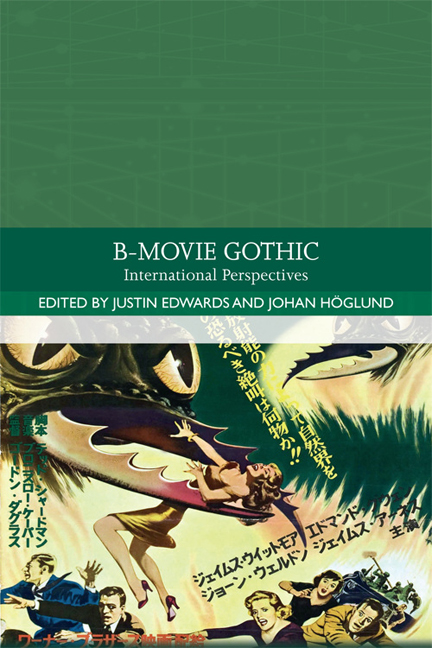12 - Hong Kong Gothic: Category III Films as Gothic Cinema
Published online by Cambridge University Press: 06 May 2021
Summary
In Hong Kong, Category III films are ‘approved for exhibition only to persons who have attained the age of 18 years’ (Film Censorship Ordinance, section 12). This category was part of a new rating system in Hong Kong under the Movie Screening Ordinance Cap. 392 implemented on 10 November 1988. It was intended to allow artistic freedom to filmmakers, while protecting children from exposure to inappropriate images in film. In reality, the law created an opportunity for film producers to capitalise on the new-found legitimacy of ‘low-budget pornography and gorefests’ (Bordwell 2011, 79), leading to an explosion of exploitation films that became characteristic of Hong Kong popular cinema in the 1990s. The films in question, notable for their ‘mix of murder and mutilation, large breasts and lesbianism’ (Stringer 1999, 362), proved popular with domestic audiences and did well at the box office. They also launched the mainstream careers of stars like Veronica Yip and Anthony Wong, the latter receiving a Best Actor Hong Kong Film Award for his portrayal of a serial killer in The Eight Immortals Restaurant: The Untold Story (1993). These films also ‘won guarded critical approval, and attracted cult attention from overseas video audiences’ (362).
The critic Julian Stringer proposes that we treat Category III films as a distinct genre, albeit characterised by stylistic hybridity. But because the label is used for a variety of local and foreign films, such an all-inclusive generic classification is misleading. The category's diversity is illustrated by the range of films given this classification: Jackie Chan's Crime Story (1993), Andrew Lau's Young and Dangerous: The Prequel (1998) and Wong Kar-Wai's Happy Together (1997). This category includes crime dramas, erotica, martial arts movies and war films, many of which include violence, racism, misogyny and homophobia, and are unified by their shared ‘emphasis on sexuality, class violence, social mobility, the flattening of time, and the imagining of a dystopian postmodern aesthetic’ (Stringer 1999, 364).
David Bordwell (2011, 96) notes that ‘since ordinary Hong Kong films have a high quota of blood, sex, defecation and vomit, a film has to go far to earn a Category III rating’. Unsurprisingly, then, the first film upon which this honour was bestowed remains one of the most controversial offerings of exploitation cinema, Men Behind the Sun (1988).
- Type
- Chapter
- Information
- B-Movie GothicInternational Perspectives, pp. 186 - 208Publisher: Edinburgh University PressPrint publication year: 2018

